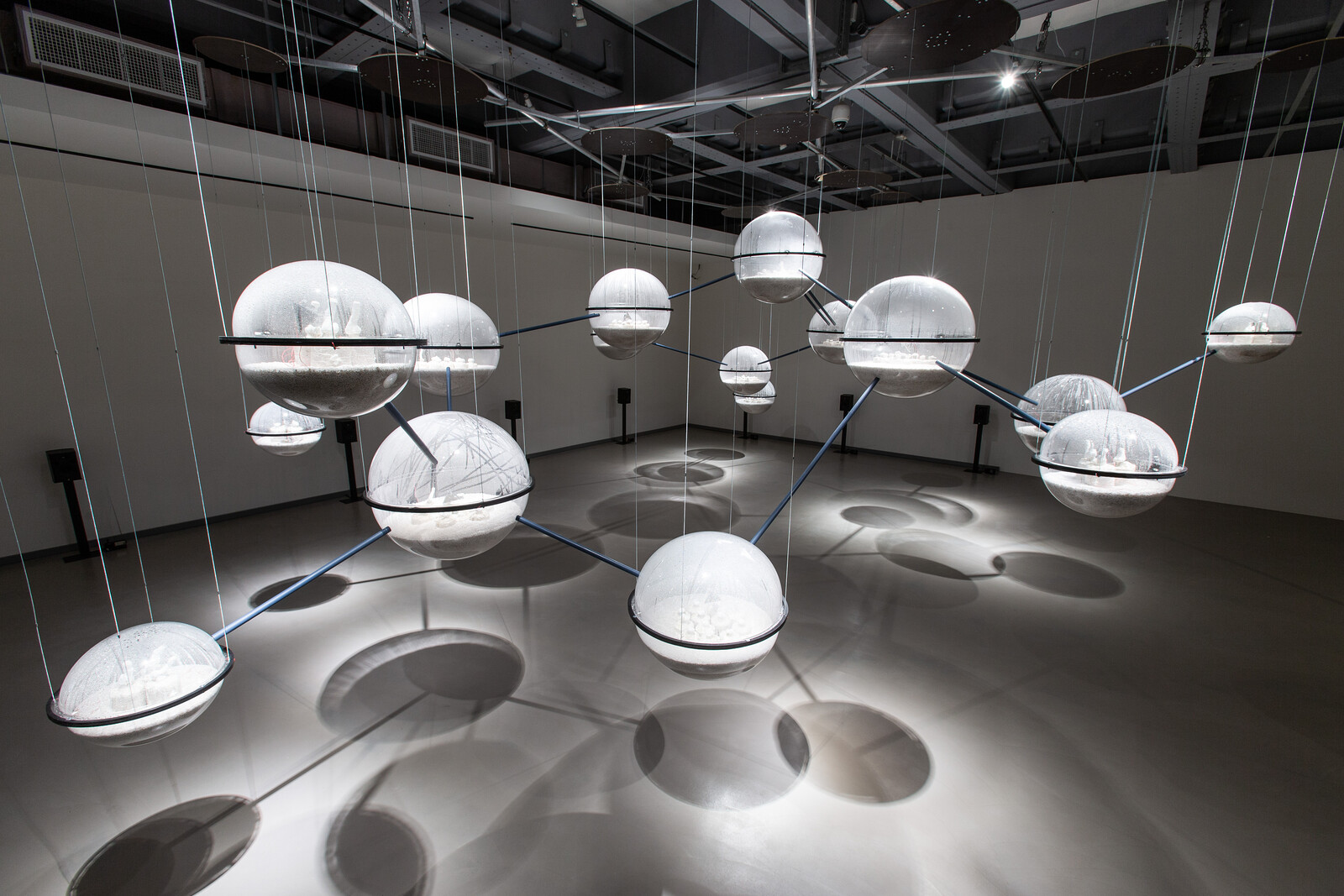Post-Nature—A Museum as an Ecosystem
November 17, 2018–March 10, 2019
No. 181 Zhongshan N. Road Sec. 3
Taipei 10461
Taiwan
The 11th edition of Taipei Biennial 2018: Post-Nature—A Museum as an Ecosystem takes place at Taipei Fine Arts Museum from November 17, 2018 to March 10, 2019.
Co-curated by Mali Wu and Francesco Manacorda, the Biennial focuses on the interconnectivity of ecosystemic structures formed between humans and nature and aims to serve as a platform for social experimentation, generating new interdisciplinary possibilities for long-lasting, community-driven, bottom-up synergies.
While the exhibition venue, Taipei Fine Arts Museum, act as the Biennial’s central nervous system, the experimental methodology of this exhibition will transform the museum into a platform for multi-disciplinary discussion, which intends to extend outward and reach multilateral resonance outside of the museum’s architectural limits.
In the Biennial, the museum is reconsidered as a social model. Exhibitions grow quickly, occupy a limited time span, and have little ability to sustain their reach, while museums develop slowly and organically, responding carefully to their environments and preserve their own longevity. The curators mention, if too rigidly confined by an architectural and conceptual framework, a museum can become an isolated space for art contemplation, rather than remain open to constant ecosystemic transformation, osmosis and growth. This Biennial aims to investigate how museum as an institution exists as, and within, a social, cultural, economic and political ecosystem.
Participants and participating groups of the Biennial include not only visual artists, but also NGOs, activists, film and documentary makers, architects and other non-visual artists. They are as follows: Ruangsak Anuwatwimon, Martha Atienza, Au Sow-Yee, Ursula Biemann, Alexey Buldakov, Huai-Wen Chang+Mas (Micro Architecture Studio), Ting-Tong Chang, Jui-Kuang Chao+Tainan Community University, Julian Charrière, Chen Chu-Yin+Solar Insects Vivarium Workshop, Paris 8 University, Lucy Davis (The Migrant Ecologies Project), Et@T, Laila Chin-Hui Fan, Futurefarmers, Tue Greenfort, Ingo Günther, Gustafsson & Haapoja, Henrik Håkansson, Helen Mayer Harrison & Newton Harrison, Jeffrey Hou & Dorothy Tang, Hsiao Sheng-Chien, Huang Hsin-Yao, Indigenous Justice Classroom, Ke Chin-Yuan + “Our Island,” Keelong River Watch Union, Khvay Samnang, Kuroshio Ocean Education Foundation, Candice Lin, Zo Lin—Weed Day, Duane Linklater, Lu Ji-Ying, Nicholas Mangan, Jumana Manna, Mycelium Network Society (Franz Xaver + Taro + Martin Howse + Shu Lea Cheang + Global Network Nodes), Open Green, Allan Sekula, Rachel Sussman, Vivian Suter, Taiwan Thousand Miles Trail Association, Wu Ming-Yi, Robert Zhao Renhui, Zheng Bo (in alphabetical order).
By presenting non-traditional creatives in TFAM galleries, the curators attempt to break the conventional boundaries between artists and non-artists, with the aim of enhancing discussion and knowledge exchange. Curator Mali Wu notes that the exhibition spaces will be divided according to the concept of an “eco-lab,” aiming to highlight the interactivity of information, encourage the participatory model and redefine the roles and functions of the space. The labs will develop organically as the exhibition unfolds, becoming interdisciplinary hubs of knowledge.
Between November 17 and 18, Taipei Fine Arts Museum hosts a series of talks, considering the sub-themes ”Re-naturalizing Citizenship” and “Democratizing Boundaries”; from December 15 to 16, the talks will examine the sub-themes of “Re-politicizing Ecology” and “Decolonizing Nature.” Esteemed speakers from around the world include Chun-Mei Chuang, Mayaw Biho, Ursula Biemann, Yen Shen-Horn, Tsung-Huei Huang, Minchien Hsu, Nabu Husungan Istanda, Terike Haapoja, Laura Gustafsson, Paul Jobin, Nicholas Mangan, Zheng Bo, Tue Greenfort, Ke Chin-Yuan, Ruangsak Anuwatwimon, Chao Rui-Kuang, Hung Kuang-Chi, Christian Nyampeta, Au Sow-Yee, Wu Ming-Yi, Tania Roy, Ute Meta Bauer, and Fang-Tze Hsu.
As curator Francesco Manacorda explains, conversations between practitioners of different fields and discursive investigations are at the very center of this year Biennial’s structure and methodology. The symposia aim to expand some of the themes that artists have brought to the fore in the exhibition or that activists have been working on in their practice. The necessity of re-negotiating the relationship between man and the environment as a mutually dependent and responsible one, has formed the backbone of the event structure.

